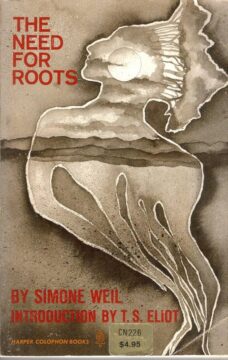Judith Thurman at The New Yorker:
 The French philosopher Simone Weil was a soul at odds with herself and with a world of affliction. The causes she espoused as a social activist and the faith she professed as a mystic were urgent to her and, as she saw it, to humanity. Little of her work was published in her lifetime, but since her death, at thirty-four, in 1943, it has inspired an almost cultlike following among readers who share her hunger for grace, and for what she called “decreation”—deliverance from enthrallment to the self.
The French philosopher Simone Weil was a soul at odds with herself and with a world of affliction. The causes she espoused as a social activist and the faith she professed as a mystic were urgent to her and, as she saw it, to humanity. Little of her work was published in her lifetime, but since her death, at thirty-four, in 1943, it has inspired an almost cultlike following among readers who share her hunger for grace, and for what she called “decreation”—deliverance from enthrallment to the self.
Eminent theologians have revered Weil (Paul Tillich, Thomas Merton, Pope Paul VI), and so have writers of the first rank, especially women (Hannah Arendt, Ingeborg Bachmann, Anne Carson, Flannery O’Connor, Susan Sontag). Albert Camus hailed her as “the only great spirit of our time.” T. S. Eliot credited her with a “genius akin to that of the saints.” But Weil herself might have objected to these consecrations as a form of “idolatry,” which she defined as a misguided thirst for “absolute good.” Nothing is so absolute about her as the difficulty of parsing her contradictions.
more here.
Enjoying the content on 3QD? Help keep us going by donating now.
